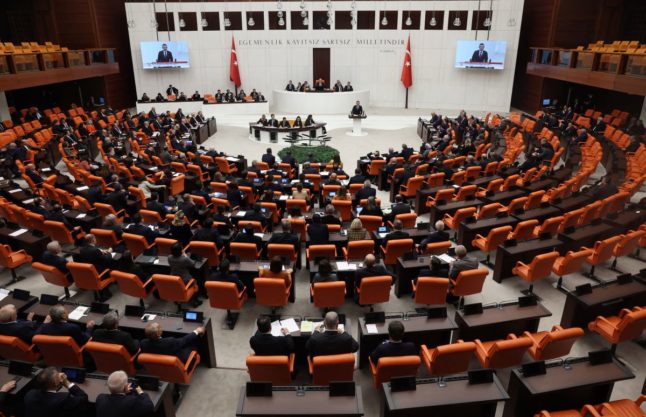The vote on Sweden’s membership of Nato is the final, 42nd point on the parliament’s agenda for Tuesday, January 16th.
The point on the agenda reads: “Istanbul Deputy Numan Kurtulmuş’s Bill Concerning the Approval of the Protocol Concerning the Participation of the Kingdom of Sweden in the North Atlantic Treaty, and the Foreign Affairs Commission Report”.
“It’s a big deal that this has come up on the agenda already on the first day of opening,” Paul Levin, the head of the Institute for Turkish Studies at Stockholm University, told the Dagens Nyheter newspaper. “For the Swedish government this is extremely positive.”
Levin was originally quoted in the newspaper as saying that a vote could happen as early as Tuesday, but according to the TT newswire, the vote has not been given priority, meaning there is no clear date or time for a vote.
The group leaders of the various parties in the parliament are, it reported, now expected to meet on Friday and on next Monday to then decide which items on the agenda will be decided by the parliament in which order.
Turkey and Hungary have long delayed their approval for Sweden’s membership, with Turkey accusing Sweden of being a haven for terrorists from the PKK, a Kurdish separatist group.
On December 26th, the Turkish Parliament’s Foreign Policy Committee submitted the bill to the parliament shortly before it closed for the year.
Levin said that by putting Sweden’s membership last, the parliament had given itself the flexibility to postpone the vote at the same time as signalling that a vote could happen soon.
Turkey may opt to hold back until the US Congress tables a vote on a decision to allow Turkey to buy F16 fighter jets, something Turkey’s president, Recep Tayyip Erdogan, said in December should happen “simultaneously” with the vote on Swedish membership.
Once the parliament approves Sweden’s membership application, the only remaining step is for Erdogan to sign the ratification documents.



 Please whitelist us to continue reading.
Please whitelist us to continue reading.
Member comments